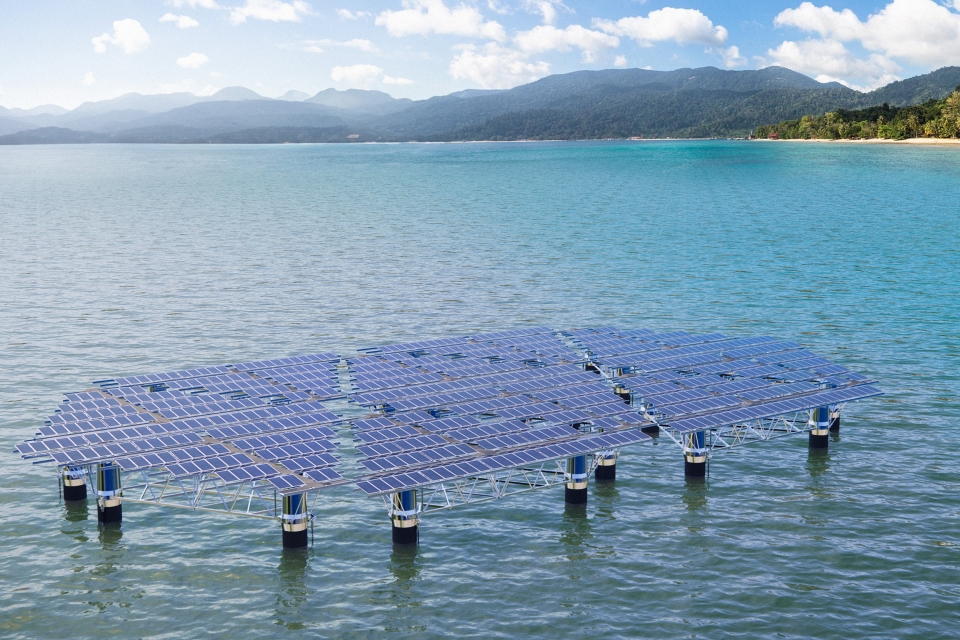SolarDuck will install a 780kW offshore floating solar (OFS) plant off the coast of Malaysia as a research project to assess technical and economic feasibility of OFS in Malaysia. The installation is targeted to be completed by 2025.
To this end, TNB Renewables and TNB Research signed a Letter of Intent (LoI) with SolarDuck and Hydro on 15 June. TNB Renewables (TRe) and TNB Research (TNBR) are wholly owned subsidiaries of Tenaga Nasional Berhad, the largest electricity utility in Malaysia. Hydro Extrusion Norway is a leading aluminium and energy company.
The signing marks the beginning of a partnership to advance solar energy solutions in Malaysia and Southeast Asia. The OFS will be located off the coast of Tioman island in Malaysia. The project is to accelerate technology development for stand-alone use in the tropical areas, and support to drive the cost competitiveness of OFS.
New distributed energy generation methods like OFS will provide additional pathway for TNB to diversify its RE portfolio and achieve its net zero aspiration. Hydro contributes with engineering and production of the aluminium profiles which the solar plant is constructed from.
Tioman island is the starting point of a renewable future for Malaysia, opening a large potential for OFS in the entire region as OFS is set to become the most affordable marine energy technology by 2030.
Also read: SolarDuck to build Japan’s first offshore floating solar demonstrator
Diversifying the energy mix
Malaysia seeks to diversify its energy mix and create a renewable energy system. ‘The main goal of TNB is to get to net zero while providing a reliable and cost competitive energy supply without jeopardizing the environment. Offshore floating solar provides an exciting opportunity for achieving this,’ says Zarihi Hashim, Chief New Energy Officer, TNB.
In Southeast Asia, wind is scarce and it therefore lacks opportunities for wind energy. Furthermore, large scale solar developments on land in Southeast Asia are increasingly hampered by land scarcity issues and increasing public resistance. Taking solar out to sea, allows for new opportunities.
Also read: SolarDuck builds 5-MW of floating solar power at Dutch offshore wind farm
Aluminium as a circular material
The focus on renewable energy and circularity is also shared by Hydro which will supply the aluminium profiles for the project. Hydro is on an ambitious path to net zero. As aluminium is a highly circular material, recycling is at the core of this circularity approach, and the company actively participates in innovative projects and new industry initiatives.
The project with TNB will include deliveries from Hydro plants in Lichtervelde, Belgium, and Magnor, Norway.
‘We are excited to be part of building a new industry for offshore floating solar. Solar energy is an important part of the necessary shift to renewable energy, and aluminium profiles is the perfect fit for such installations being light-weight and requiring no maintenance for several decades,’ says Bruno D’hondt, senior vice president in Hydro Extrusions.
Also read: RWE and SolarDuck to accelerate development of offshore floating solar








